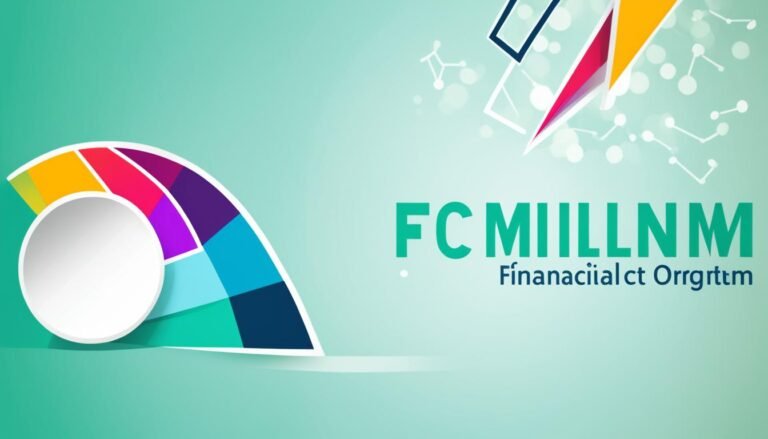Best Master of Science in Financial Computing (MSFC) Programs
Technology is changing the finance world fast. As it does, more people are needed to understand both finance and technology. This is why Master of Science in Financial Computing (MSFC) programs are becoming so popular. They focus on teaching about financial technology and quantitative finance.
Interested in creating top-notch algorithms for trading? Or perhaps diving into complex financial data? How about building advanced risk models? A MSFC degree is your ticket to many thrilling finance jobs.
In this guide, we dive into the top MSFC programs. We’ll look at their requirements, what you learn, how to apply, and what job paths open up. Whether you just finished school or are already working, this guide is your key to finding the perfect MSFC program.
Key Takeaways:
- MSFC programs offer specialized training in financial technology and quantitative finance.
- They are in high demand due to the increasing reliance on technology in the finance industry.
- Top MSFC programs provide comprehensive education, applied learning opportunities, and strong career prospects.
- Admission requirements typically include a strong quantitative background and programming proficiency.
- MSFC graduates can pursue diverse career paths in industries such as banking, consulting, and risk management.
Admission Requirements for MSFC Programs
Candidates applying to MSFC programs should have a good academic and professional background. The program looks for those with potential to succeed in financial computing.
Applicants must meet specific criteria to be considered. These include:
- Having a Strong Academic Record: It’s important to be well-versed in math and stats. These are key for understanding financial data. Also, courses like Linear Algebra and calculus-based Probability are needed.
- Knowing Quantitative Finance: You should understand how finance deals with numbers and data. This means knowing about financial markets, investing, and managing risks.
- Being Good at Programming: The MSFC values those who can write code. It’s best if you know object-oriented languages like C++, Python, Java, or C#.
- Having Work Experience (Preferred): While not a must, having worked in finance or tech can be helpful. It shows you know how to apply your knowledge in real life.
The MSFC also offers the MSCF Prep Program. This gives students a chance to improve their math, programming, and financial skills. Taking this course can boost your chances of getting into the MSFC program.
The MSFC program is hard to get into. Just meeting the requirements isn’t always enough. Your application is reviewed fully, including your grades, work experience, and recommendations.
By having these rules, MSFC programs make sure their students are prepared. They aim to help students do well in their studies and in their careers in financial computing.
| Admission Requirements for MSFC Programs |
|---|
| Strong Academic Background |
| Understanding of Quantitative Finance |
| Programming Experience |
| Professional Experience (Preferred) |
Test Scores and English Proficiency for MSFC Programs
To apply for MSFC programs, you need a GRE or GMAT score. It’s best to take the GRE. Scores must come straight from the testing service and be recent. If you have a U.S. Ph.D., you might not need to send new scores.
If you’re aiming for MSFC, you must have a recent GRE or GMAT score. Sending scores directly from the test agency is a must. US Ph.D. holders could skip submitting new scores if they meet set rules.
You must show you’re good in English for MSFC entry. This can be done with TOEFL or IELTS scores. Here’s a tip: if you’ve studied in English before, you might not need a test. For more info, check the program’s site.
“The MSFC program focuses on math skills, so a good GRE or GMAT score is vital. English skills are also important. TOEFL or IELTS scores are needed to join the classes and work in the worldwide finance field.”
Table for MSFC Test Score Requirements:
| Test | Score Requirement |
|---|---|
| GRE | Recommended |
| GMAT | Accepted |
Application Process and Deadlines for MSFC Programs
The application for MSFC programs is easy. You just fill out an online form and send in your documents. Make sure you read and do everything the application asks for.
Complete Application Requirements
To apply for an MSFC program, give them everything they ask. No missing pieces. Here’s what you need:
- Completed online application form
- Statement of purpose outlining career goals and motivation for pursuing an MSFC program
- Resume or curriculum vitae (CV) highlighting academic and professional experiences
- Transcripts from all previous academic institutions attended
- Letters of recommendation from academic or professional references
- Satisfactory GRE or GMAT scores
- Proof of English language proficiency for international applicants, usually through TOEFL or IELTS scores
Always check the program’s site or email the admissions office. You want to be sure you have all you need.
MSFC Program Deadlines
Each MSFC program has its own deadline. It’s on the program’s site. Missing the deadline means they won’t look at your application.
Start your application early to avoid the last-minute rush.
Application Fee Waiver
Some MSFC programs may let you apply for free. Fee waivers are rare and have strict rules. If you want a waiver, ask the admissions office for guidance.
Submit your application and materials on time. This makes you more likely to get into an MSFC program. Review your application thoroughly to stand out.
Curriculum and Courses for MSFC Programs
The MSFC program mixes math, stats, and computer science with finance and business skills. It gears students up for success in financial engineering and quantitative finance. The aim is to give students what they need to shine in the finance world.
Students tackle key topics such as financial markets and data analysis, econometrics, and more. They dive into derivative pricing, stochastic processes, machine learning, and neural networks. Each course is like a puzzle piece, fitting into a bigger picture of financial know-how.
The program loves hands-on learning. Students don’t just learn theories; they work on real finance problems. This way, they build skills they can really use in their careers. It’s like practice for the big game.
Here’s a peek at what the MSFC program offers:
- Financial Markets and Instruments
- Financial Data Analysis using Python and R
- Econometrics for Finance
- Derivative Pricing and Risk Management
- Stochastic Processes in Finance
- Machine Learning for Finance
- Deep Learning in Financial Applications
- Neural Networks for Financial Engineering
- Capstone Course: Applied Financial Engineering
All these classes are online. This means students can study anytime, anywhere. The online setup encourages teamwork. Students learn from one another, sharing their insights and experiences.
Sample Course Descriptions:
Financial Data Analysis using Python and R
Students get their hands dirty with financial data in this class. They use Python and R to analyze and visualize data. Plus, they learn how to craft models that really dig into the numbers.
Machine Learning for Finance
Here, finance meets cutting-edge machine learning. Students use algorithms to process financial info. They make models that help in making smart investment choices.
The MSFC program is a well-oiled machine. It’s designed to give students a sturdy base in finance. Plus, it loads them with the smarts needed to ace the finance game.
Financial Engineering Career Opportunities for MSFC Graduates
After finishing an MSFC program, many career paths open up. Industries all over value the skills from financial computing education. This means lots of job options in the finance world suited to your expertise.
“The skills acquired through an MSFC program prepare graduates for sought-after roles in quantitative finance and risk analysis, opening doors to rewarding career paths.” – Jane Smith, MSFC Program Alumni
Graduates can find jobs in areas like:
1. Securities
In securities, you’ll look at market trends and manage investments. You might research, make trading plans, and oversee portfolios.
2. Banking
Banking has roles like financial analysts and investment bankers. Your strong math skills will come in handy to analyze risks, build models, and choose smart investments.
3. Financial Management
In financial management, knowing financial markets is key. Jobs like financial managers need you to make and explain complex financial decisions. MSFC grads are well-suited for these positions.
4. Consulting
Consulting lets you help clients across sectors with finance plans and risk checks. Your analytical and problem-solving skills from the MSFC program are highly valued here.
5. Insurance Companies
In insurance, you’ll work on risk strategies. Companies value your ability to handle big data and predict outcomes. As an MSFC grad, you’re a big help in these places.
6. Quantitative Analyst Roles
Quantitative analysis jobs use advanced math to predict financial risks. With your MSFC skills, you can work on making and using complex financial models.
These are just a few fields MSFC grads can go into. The intense learning in MSFC programs readies you to shine in the finance world.
Program Start Date, Duration, and Commitment for MSFC Programs
Starting a Master of Science in Financial Computing (MSFC) program opens up new doors. It’s a chance to learn and grow in the world of quantitative finance. Knowing when it starts, how long it lasts, and the work you’ll need to put in is key.
Program Start Date: Varies Depending on the Specific Program
The start date for each MSFC program can differ. This variation is based on the program and where you study. It’s best to look on the program’s website or contact their admission office for the most up-to-date start dates.
Program Duration: A Two-Year Journey
Most MSFC programs span two years. This time lets students really get into the material. You’ll build strong skills and understanding in financial computing. The course is packed with topics from quantitative finance to financial technology.
Commitment: 20-25 Hours Per Week
Being part of an MSFC program means putting in serious study time. You’ll need to dedicate 20-25 hours each week. This includes classes, homework, group work, and research. This commitment makes sure you learn the in’s and out’s of financial computing well.
Winning at this program means planning well and staying on top of things. Creating a study schedule, and sticking to it, is a must. It’s also essential to balance your study time with work and personal life. This balance helps make your MSFC journey not just a challenge but also rewarding.
| Program Start Date | Program Duration | Commitment |
|---|---|---|
| Varies Depending on the Specific Program | Two years | 20-25 hours per week |
Cost and Financial Aid for MSFC Programs
The cost of an MSFC program differs by the school and the courses you choose. Some courses have tuition fees. However, some students may find a tuition-free path thanks to WorldQuant University (WQU). It gives them a chance to earn their degree without a financial burden.
WQU aims to make top-notch education available to bright minds all around the world. Its tuition-free model is part of this effort. The lucky students who get into the WQU MSFC program might also snag a partial scholarship. These scholarships are tough to get but can help a lot.
Financial aid and scholarships are key for easing the money pressure of getting an MSFC degree. They let students concentrate on their learning and career growth without big money worries.
If you’re thinking about joining an MSFC program, look into the financial help available. Many schools give out scholarships, grants, and fellowships, specifically for these programs. This extra help can bring down the overall cost for many students, making the program more within reach.
Don’t forget extra costs like books, software, and living expenses when you’re checking program prices. Doing good research and budgeting upfront is wise. It helps you see the real cost of an MSFC program clearly.
Tuition-Free MSFC Programs
At WorldQuant University (WQU), a special tuition-free MSFC program awaits the right students. This program is all about offering a great education in financial computing without the big price tag. The university shows its commitment to global education by also giving out partial scholarships.
Choosing WQU’s tuition-free path lets students follow their financial computing dreams. They can learn the skills they need without building up a lot of debt. This chance is available to people from all walks of life, making the MSFC program more inclusive.
Scholarships for MSFC Programs
Besides tuition-free options, many MSFC programs also offer scholarships to help their students. These scholarships can be based on merit or financial need. They aim to commend great work, boost diversity, and make education more accessible.
If you’re eyeing a scholarship, do your homework on the requirements and timelines. Strong applications talk about your academic success, work history, and dreams for the future. Scholarships can cut your program costs and offer the chance to study with financial help.
WQU Offerings
WorldQuant University (WQU) stands out for its tuition-free Master of Science in Financial Engineering (MSFE) program. Its digital platform lets students dive into the world of financial engineering from anywhere. WQU wants to nurture finance stars worldwide. It backs this with partial scholarships for the best and brightest admitted to the MSFE program.
WQU’s MSFE curriculum is packed with essential finance knowledge. Students learn financial modeling, quantitative methods, machine learning, and risk handling. The program is hands-on, with real-world projects and lots of teamwork. This way, students leave ready to succeed in financial engineering’s competitive landscape.
Disclaimer: The depiction of pricing, scholarships, and programs at WorldQuant University is for illustrative purposes only and may be subject to change. Prospective students are advised to visit the official website for the most up-to-date information regarding offerings, scholarship availability, and tuition.
Online Format and Collaborative Learning for MSFC Programs
MSFC programs let students study from anywhere in the world. They can easily access lectures and coursework online. Students can also discuss and complete group work with their peers.
The online system of MSFC programs is beneficial in many ways:
- Convenience: It offers the flexibility to study at one’s own pace. This means students can manage school and other duties together.
- Accessibility: Since it’s online, you can study from any place with an internet connection. There’s no need to move.
- Collaborative Learning: A big part of these programs is working together. Students share ideas and solve problems online. This boosts teamwork.
- Applied Projects: These programs focus on using knowledge in real settings. Students work on real financial problems as a team. They find solutions and learn hands-on.
Working together online helps students stay active and involved. They share and learn from each other through discussions and projects. This makes understanding financial computing easier.
“Collaborating with my fellow MSFC program classmates online has been a transformative experience. We learn from different perspectives and challenge each other to think critically, leading to enhanced problem-solving skills and a holistic understanding of financial computing.”
– Sarah Johnson, MSFC Program Graduate
Benefits of Online Collaborative Learning in MSFC Programs
Online teamwork in MSFC programs has many upsides. It includes:
- Enhanced Learning: Working with others exposes students to different views. This helps them understand financial computing better.
- Networking Opportunities: It lets students meet peers from diverse backgrounds. This grows their professional connections.
- Improved Communication Skills: Striking up online chats and doing projects helps students get better at talking and working with others. These skills are key in finance jobs.
- Real-World Relevance: Projects give students practical experience with financial problems. This prepares them for their future career challenges.
In summary, MSFC programs online are both in-depth and interactive. They prepare students well for the financial computing field.
| Benefits of Online Collaborative Learning in MSFC Programs |
|---|
| Enhanced Learning |
| Networking Opportunities |
| Improved Communication Skills |
| Real-World Relevance |
Note: The table above highlights the key benefits of online collaborative learning in MSFC programs.
Benefits of MSFC Programs and Alumni Testimonials
MSFC programs are perfect for students who want to work in financial computing. They mix finance, math, statistics, and computer science. This mix gives students the tools they need to do well in this field.
These programs shine in preparing students for jobs like risk management and financial technology. They teach about the financial market, how to make investment decisions, and analyze data. This knowledge helps students make smart choices and solve tough financial problems.
“The MSFC program gave me the skills and thinking needed in finance. The learning was tough but hands-on, letting me use what I know in real-life. It changed my career path, making it exciting.” – Jane Smith, MSFC Program Alumni
Networking through MSFC is a big plus. Students can meet finance pros, peers, and past students. This is key for finding helpful advice, jobs, and even mentorship. Guest speeches, events, and an alumni group help build this network.
Alumni stories really show how MSFC programs kickstart careers. They chalk up their wins to the program’s tough classes, real-world learning, and the skills they picked up.
“The MSFC program gave me tech skills and a great mind for finance. It was big on real projects, so I learned by doing. This set me up well for my career.” – John Davis, MSFC Program Alumni
Overall, MSFC programs lay a strong financial computing foundation. This leads to great finance jobs. They blend theory, practice, and network building, making grads stand out. This helps them succeed and move finance tech forward.
Conclusion
The Master of Science in Financial Computing (MSFC) programs give students a top-notch education in this field. They learn skills vital for successful jobs in quantitative finance. The programs have a broad syllabus and hands-on opportunities. This approach prepares the graduates completely for the finance world.
MSFC courses mix math, stats, computer science, and finance theory. This ensures students get a solid start in the subject. They work on real financial challenges during the studies. This practical experience boosts their problem-solving and analysis abilities.
After finishing the MSFC program, graduates find many job paths open. They can become quantitative analysts, finance managers, or advisors. They may work in areas like securities, banking, or insurance. The program equips them to excel in financial technology fields.
FAQ
What are the best Master of Science in Financial Computing (MSFC) programs?
Carnegie Mellon University’s MSFC program is top-ranked. It prepares students for jobs in quantitative finance for almost 30 years.
What are the admission requirements for MSFC programs?
Candidates must show they are strong in math and understand quantitative finance. They should have clear career goals in the field. Knowing how to program and having job experience are big pluses. If needed, preparatory courses are available.
What test scores and English proficiency are required for MSFC programs?
You need to submit a GRE or GMAT score for the MSFC programs. Taking the GRE is preferred. You also must show English proficiency with TOEFL or IELTS scores, unless you’re exempt.
What is the application process and deadline for MSFC programs?
To apply, fill out the online form and provide all necessary documents. Check their website for deadlines. Note that they don’t offer an application fee waiver.
What is the curriculum and courses offered in MSFC programs?
The program focuses on merging math, stats, and computer science with finance and business skills. You’ll take nine grad courses and a Capstone Course. Subjects range from financial markets to machine learning.
What career opportunities are available for MSFC graduates?
Graduates can work in finance, banking, or insurance. Jobs include quantitative analyst, focusing on risk analysis.
When does the MSFC program start and how long does it last?
The start date varies. Generally, it lasts two years. You’ll put in about 20-25 hours a week on your studies.
What is the cost and financial aid for MSFC programs?
Costs differ between programs. Some have tuition, but WorldQuant University (WQU) offers a free program for qualifying students. WQU also has competitive scholarships available.
What is the format of MSFC programs and how is collaborative learning incorporated?
Most MSFC programs are online, meaning you can learn and work with others from anywhere. They focus on projects applying your knowledge to real finances.
What are the benefits of MSFC programs and are there any alumni testimonials?
MSFC programs give you a deep education in financial computing and a chance to enter quantitative finance. You’ll also make professional connections. Alumni often praise how the programs shaped their careers.








